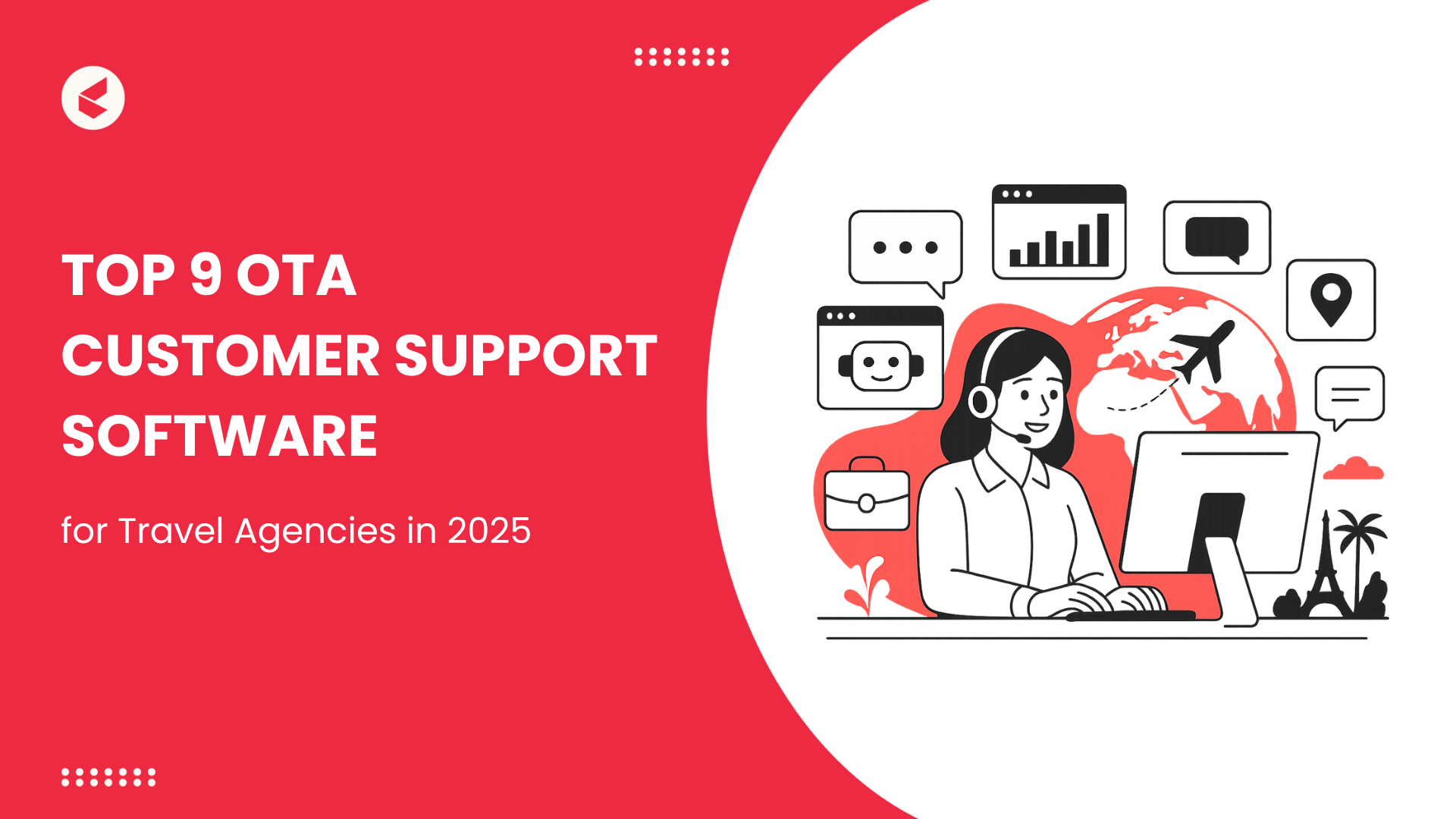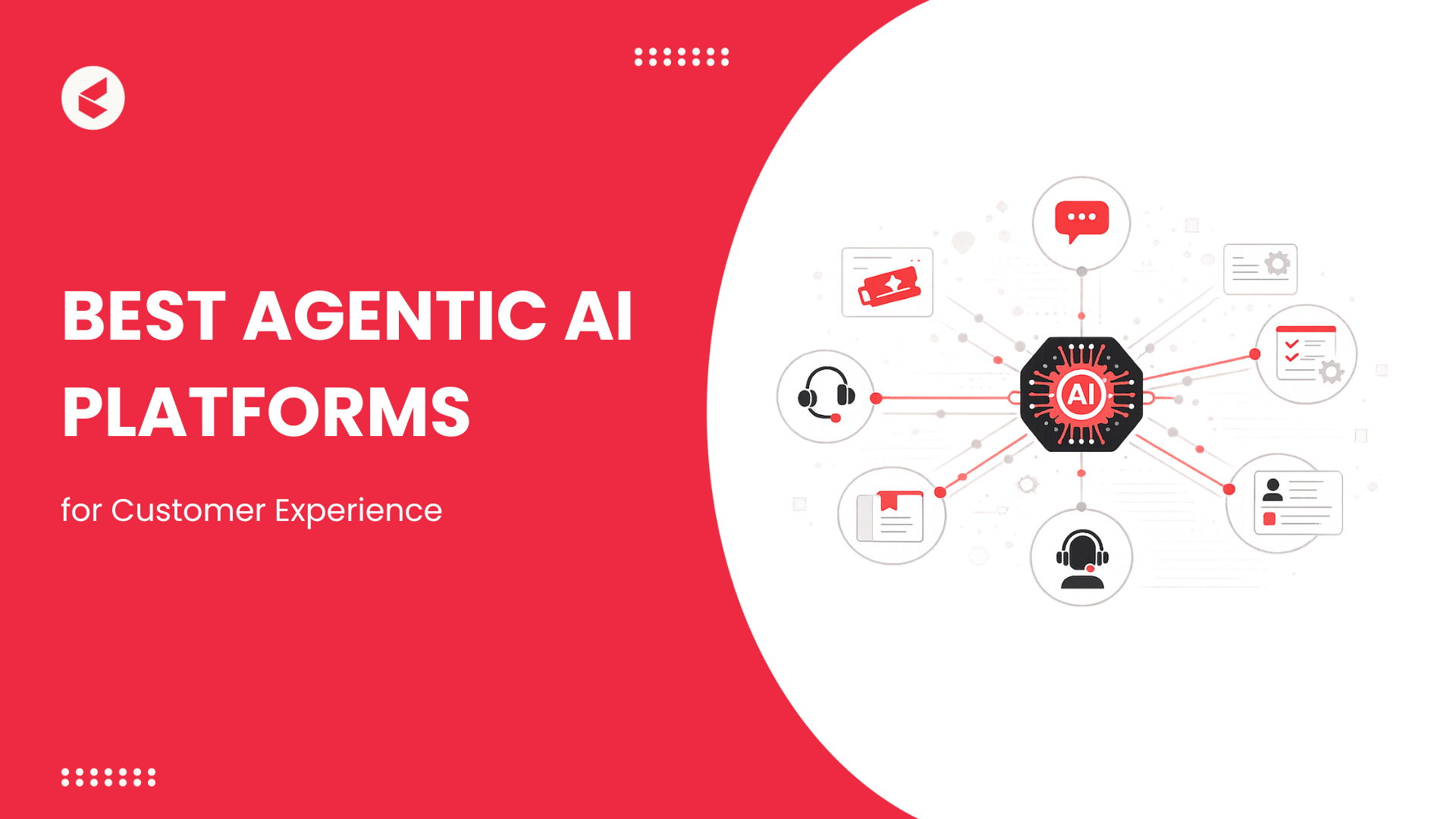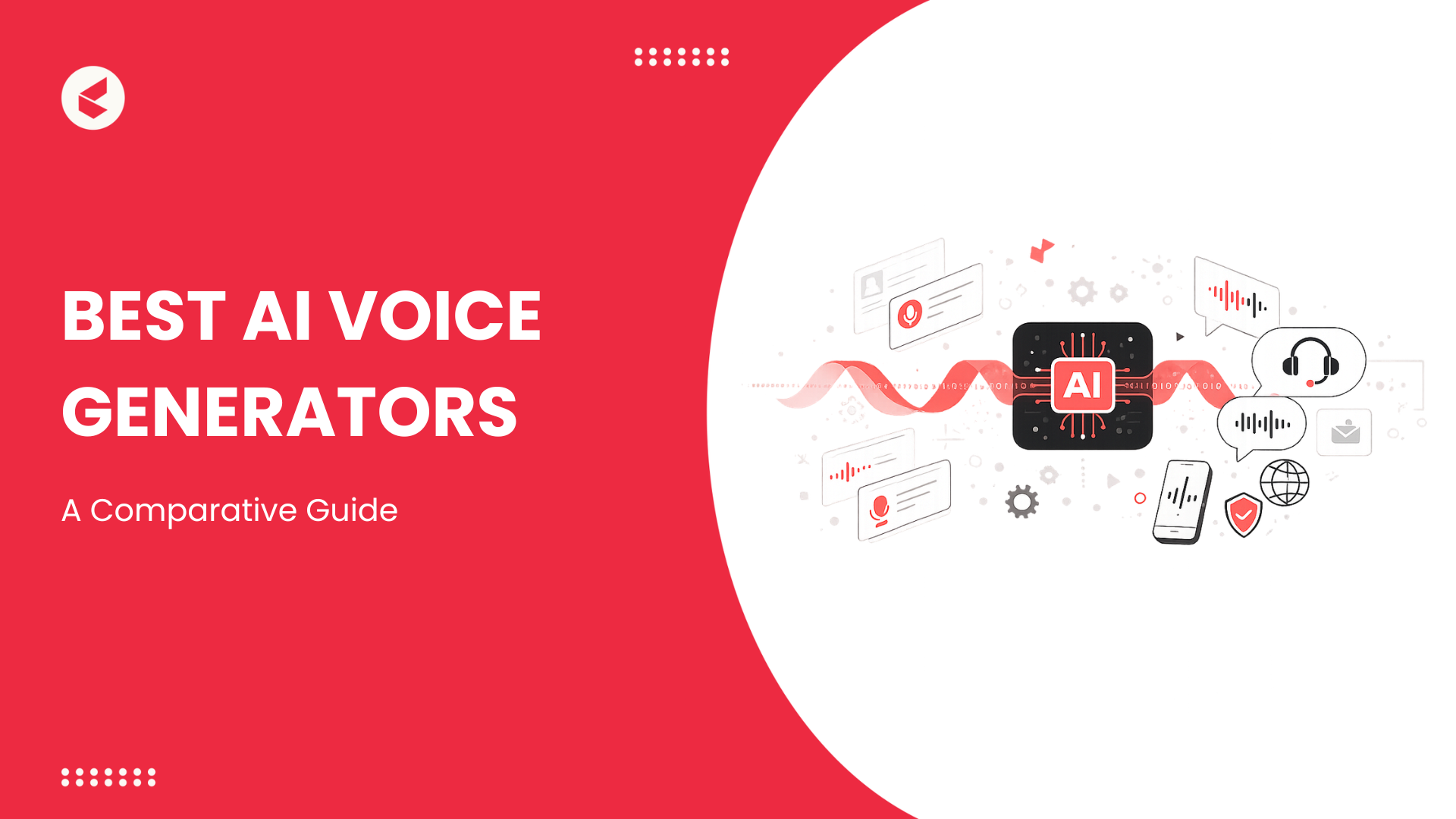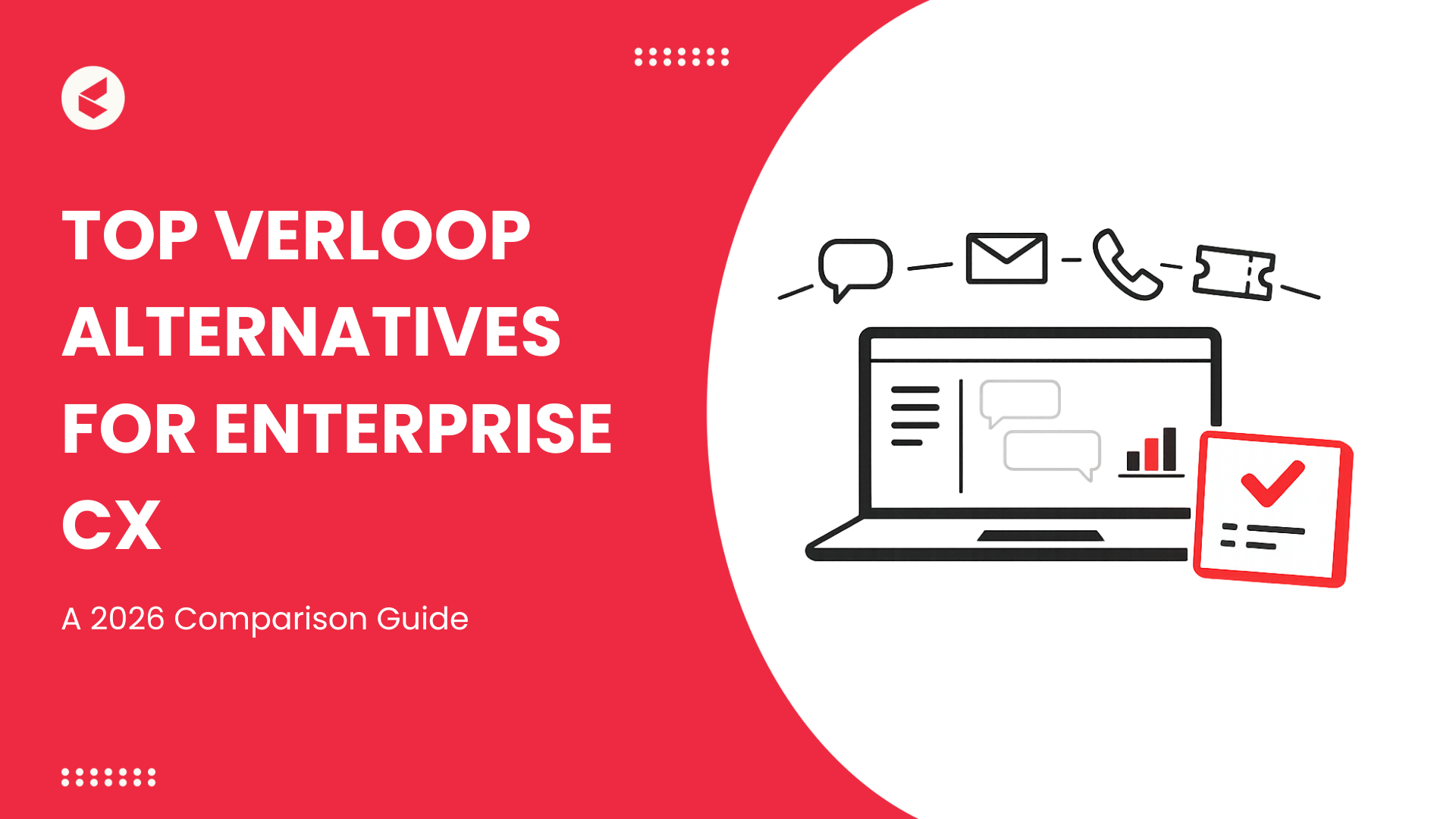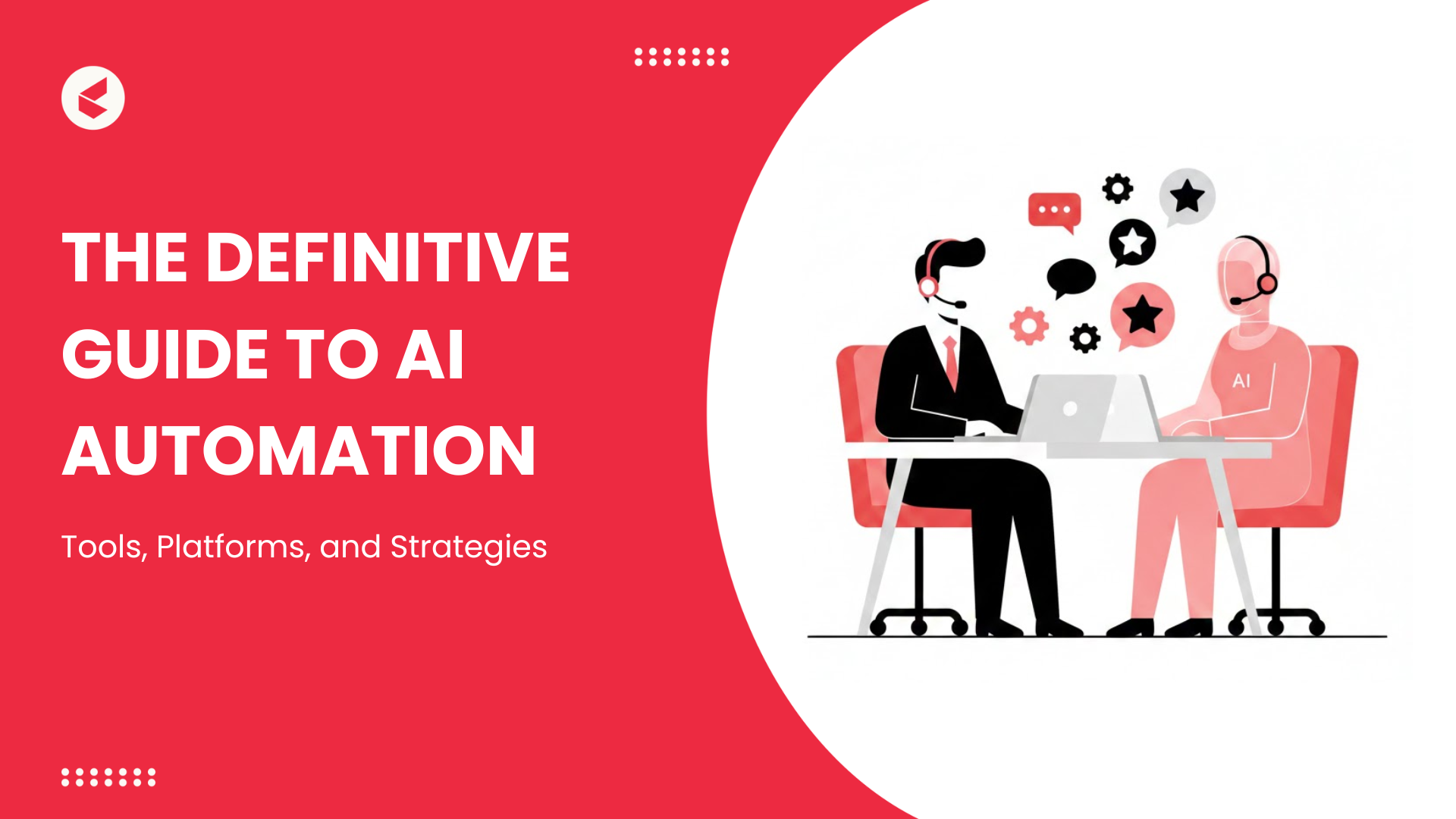The OTA market has exploded, giving travelers endless options at their fingertips. But choice comes with higher expectations. Travelers today want more reliability, speed, and an experience they can trust.
According to the Sales Group, 90% of customers expect an immediate response, with “immediate” in live chat meaning under two minutes. That leaves OTAs with very little room to miss a beat.
At the same time, the booking landscape is still evolving. McKinsey data show that 47% of experience bookings are still offline, with only 22% going through online intermediaries, such as travel booking platforms. This difference is the gap that provides agencies a significant opportunity to set themselves apart through impeccable service.
Software for Travel customer support fills that need. The ability to react promptly and ensure a seamless customer experience from inquiry to booking confirmation is essential for travel firms.
In 2026, investing in the right Travel customer support software is essential for survival in an intensely competitive travel market.
What Is Travel Customer Support Software?
Travel customer support software is a specialized platform designed for online travel agencies to handle customer queries across different customer channels within a single dashboard.
Unlike a CRM, which focuses mainly on sales pipelines and customer relationship management, this software is built specifically for the complexities of post-booking service.
Customers’ needs are rarely straightforward for travel agencies. Callers may wish to cancel a reservation, report misplaced luggage, change trip dates, inquire about refund policies, or seek clarification on visa requirements. These situations usually have a sense of urgency. Support members must move quickly while juggling multiple languages and time zones.
Where this software stands apart from a generic helpdesk is in its travel-focused functionality.
As per Omniful AI, 86% of consumers now expect seamless communication with support agents across multiple channels. Travel
customer support software is purpose-built to meet that demand.
A standard ticketing tool may help track queries, but these platforms take it a step further by connecting directly with booking engines, payment gateways, and travel APIs.
Key Features Travel Companies Should Look For
Not every customer support tool is built for the pace and complexity of online travel. When choosing OTA customer support software, here are the essentials to prioritize:
- Omnichannel Support: Travellers can contact agencies through mobile apps, social media, live chat, or phone calls. All the connections are maintained via a single dashboard.
- Integrating Real-time Booking: Direct links with GDS, airline, rail, or hotel APIs let agents view and update reservations instantly.
- Case Management Tools: Refunds, cancellations, and rescheduling requests can be logged and tracked to avoid delays.
- AI Automation: Smart bots can send auto-responses and deflect routine queries. As per Convin, agencies using AI assistants for phone calls report up to 60% cost savings compared to traditional support.
- Multilingual Support: Platforms like KaptureCX and FusionCX show the value of serving global travelers in their preferred language.
- Analytics and CSAT Tracking: Performance dashboards highlight response times, resolution rates, and satisfaction scores.
- Agent Assist and Escalation: AI suggestions and structured escalation paths guarantee faster resolutions.
Comparison Table: Top Travel Customer Support Software
Choosing the right OTA customer support software depends on your agency’s size and focus.
Below is a table of comparison to help narrow down your options:
| Software | Best For | Key Strengths | Omnichannel / AI Support? | g2 Ratings |
| Kapture CX | Mid-to-large OTAs prioritizing CX | Vertical platform built for OTAs; strong integrations with booking systems; customizable workflows. | Yes, omnichannel + AI assist | 4.5 |
| Zendesk | Enterprise OTAs, global travel brands | Scalable, widely adopted; robust integrations; trusted enterprise helpdesk. | Yes, omnichannel with AI bots | 4.3 |
| Freshdesk | SMB travel agencies | Easy setup, affordable; automation features; good for growing teams. | Yes, omnichannel + automation | 4.4 |
| LivePerson | OTAs focused on conversational AI | Strong AI chat and messaging; personalization at scale; supports retail + travel. | Yes, AI-first omnichannel | 4.3 |
| Ameyo | Call-center–heavy OTAs | Powerful telephony features; inbound/outbound campaign tools; voice-first platforms. | Partial, voice + limited AI | 4.3 |
| Travelopro | Niche OTAs and travel agencies | Travel-specific solutions; support modules tied to booking engines and APIs. | Yes, omnichannel (limited AI) | 5 |
| Zoho Desk | Startups, budget-conscious OTAs | Flexible, affordable; strong knowledge base; easy to implement. | Yes, omnichannel (basic AI) | 4.4 |
| Replicant | Voice AI for travel contact centers | Conversational AI voice agents; automates repetitive phone support at scale. | Voice AI only | 4.7 |
| Genesys Cloud CX | Enterprise-grade | Complete CX suite; advanced routing and analytics. | Yes, full omnichannel + AI | 4.4 |
Top 9 Travel Customer Support Software
Here’s a detailed breakdown of the best customer support software for OTA to help you make an informed decision while choosing one:
1. Kapture CX

Best for: Mid-to-large OTAs that want a CX-first, travel-focused solution.
Overview: Kapture CX positions itself as one of the few customer support platforms built specifically for OTAs. It integrates directly with travel booking systems, GDS platforms, and payment gateways.
Core Features:
- Omnichannel dashboard connects all communication channels in one place, cutting down resolution time.
- The platform also stands out for automation. AIbots handle FAQs and repetitive queries.
- Detailed analytics give OTAs visibility into CSAT scores, agent performance, and customer journey touchpoints.
Strengths:
- What makes Kapture CX especially relevant is its vertical focus everything from workflows to reporting is designed with the travel industry in mind.
- It’s already trusted by leading OTAs, including Batik Air and Eco Mobility.
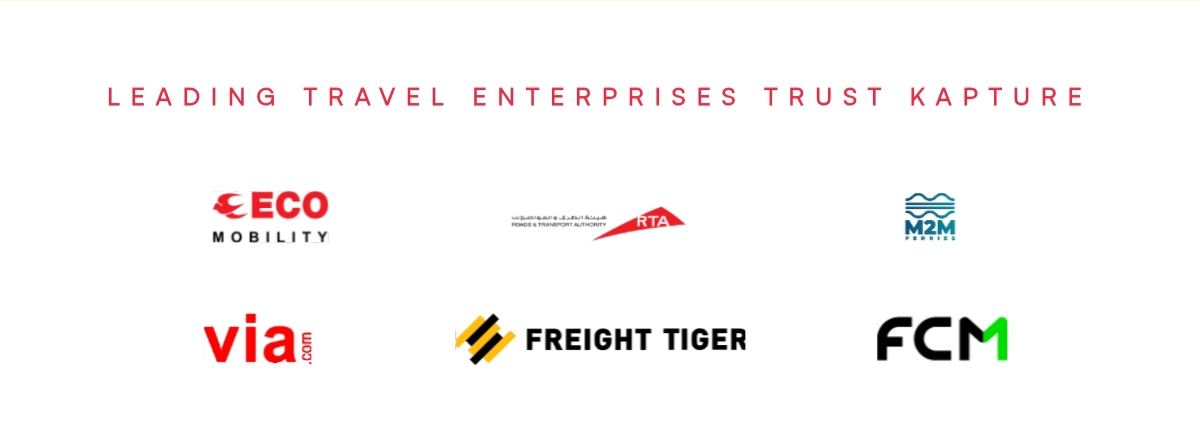
Limitations:
- Its customized approach for travel enterprises makes it valuable, even though the price may be more than that of SMB-focused technologies.
2. Zendesk
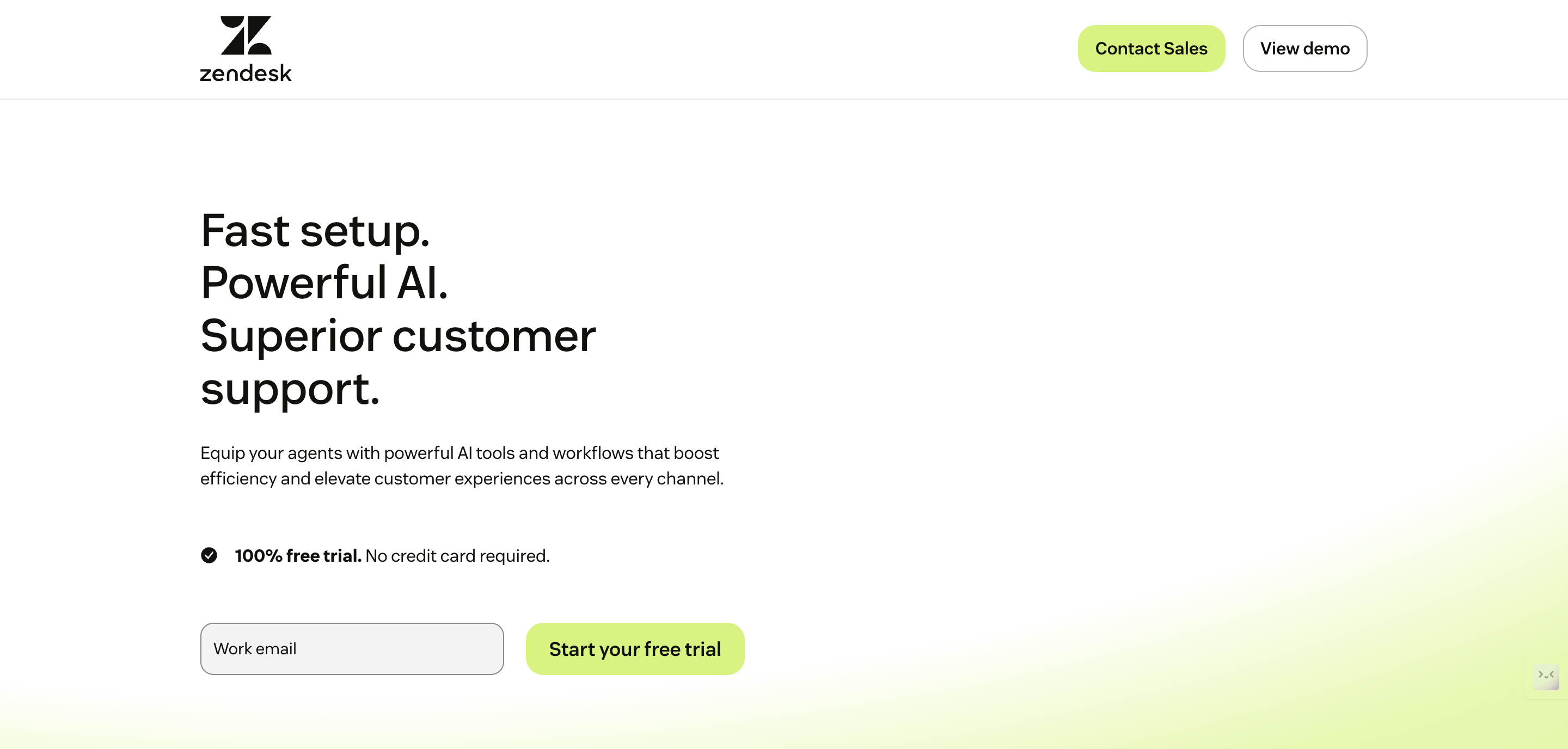
Best for: Large OTAs and enterprise-level travel brands.
Overview: Zendesk is one of the most widely used enterprise helpdesks in the world. For OTAs, its biggest strength is scalability. Whether handling thousands or millions of support tickets per month, Zendesk’s infrastructure ascertains stability.
Core Features:
- Zendesk integrates with booking systems through third-party connectors for travel agencies.
- Provide smart self-service experiences through bots with Zendesk Answer Bot.
- Reporting tools are solid, with customizable dashboards that track resolution time and satisfaction scores.
Strengths:
- The platform shines in enterprise environments where resources exist to integrate and optimize.
- For global players, it’s a tried-and-tested option with strong reliability.
Limitations:
- Zendesk’s broad industry focus means OTAs may need additional customization to make it fully travel-ready. It may feel too heavy or costly for smaller OTAs.
3. Freshdesk
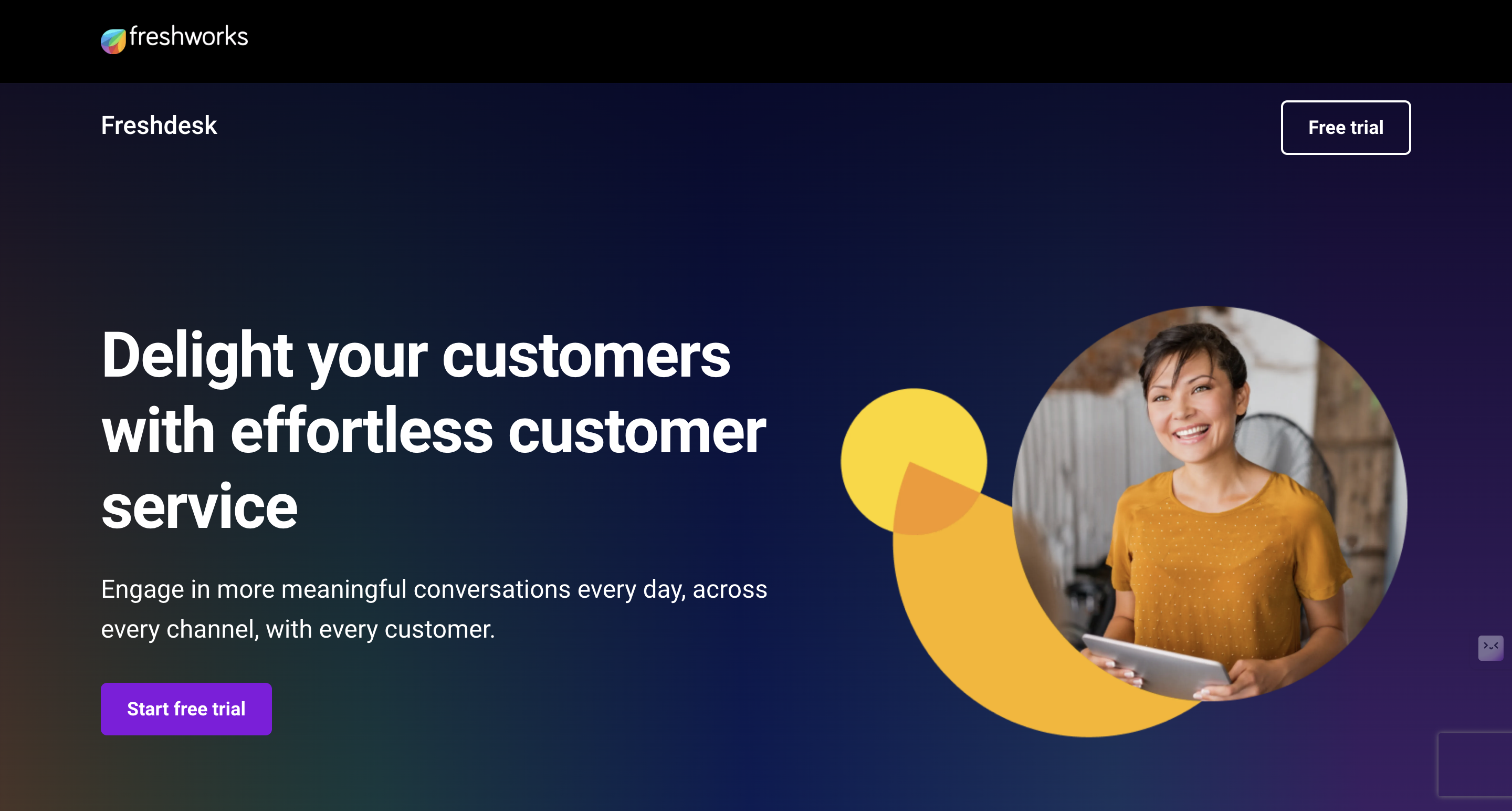
Best for: Small and midsize travel agencies and growing OTAs.
Overview: Freshdesk by Freshworks is popular among small and mid-sized travel agencies because of its affordability and ease of setup. For OTAs, Freshdesk’s travel fit comes from its flexibility.
Core Features:
- Agencies can incorporate Freshdesk with booking systems via APIs.
- AI-powered chatbots help handle simple queries.
- The knowledge base lets travelers to self-serve and resolve general queries.
- Freshdesk also offers customer satisfaction surveys and reporting dashboards.
Strengths:
- Automation is a highlight of this platform as workflows can route refund requests or cancellations to the right department. It is a sensible option for SMB OTAs.
Limitations:
- Freshdesk lacks extensive travel industry expertise.
4. LivePerson
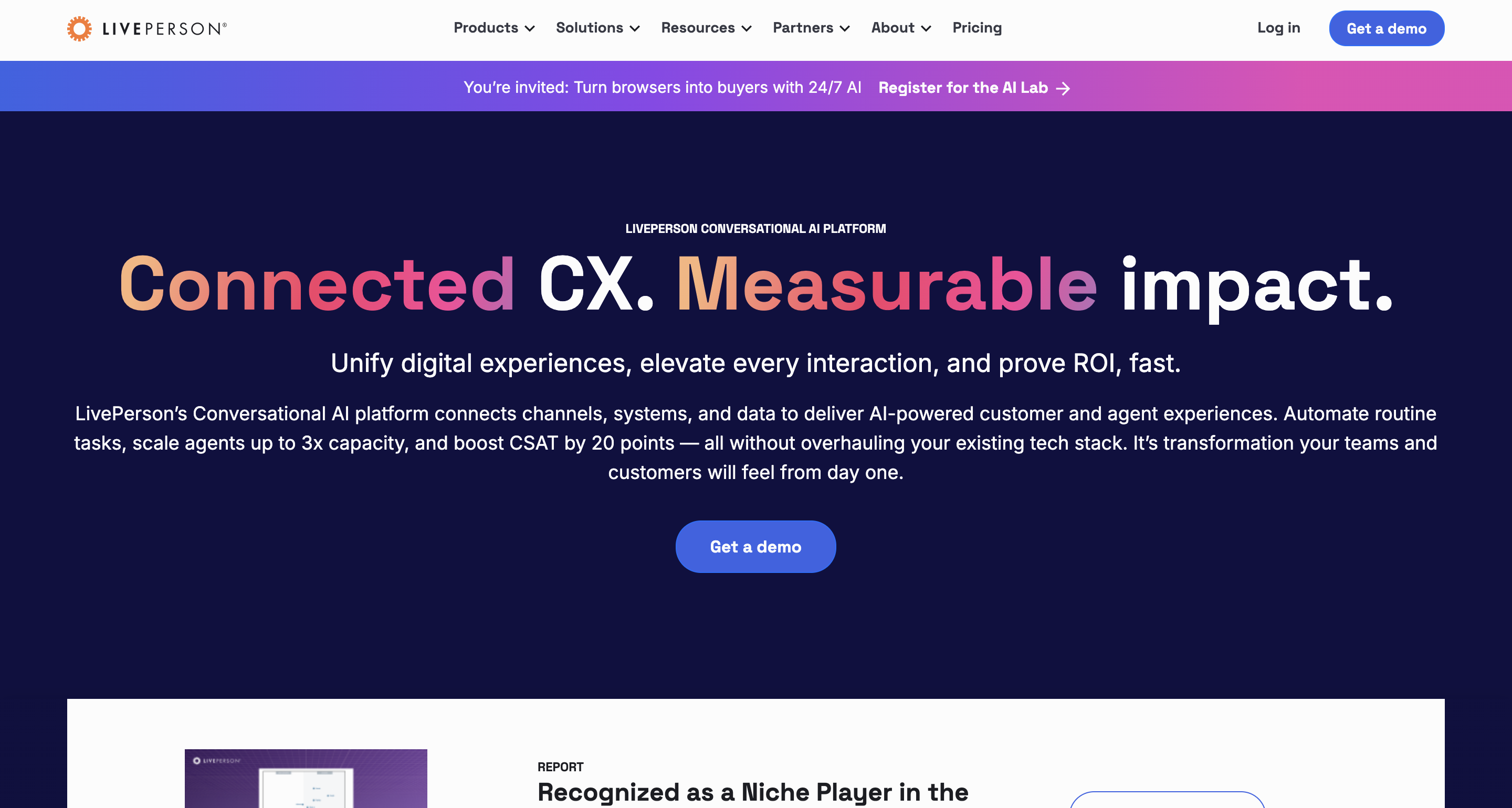
Positioning: OTAs giving AI-driven, conversational support top priority.
Overview: In the field of AI-powered customer support, LivePerson has established a niche. Customers are able to solve problems without waiting for a live person because of the platform’s expertise in conversational AI across support channels like WhatsApp, SMS, and in-app messaging.
Core Features:
- For OTAs, LivePerson’s strength lies in its ability to personalize.
- AI systems learn from previous interactions and providing custom responses. This helps agencies handle high volumes during peak travel seasons.
- LivePerson also integrates with backend booking systems, so travelers can check reservations or cancel bookings via chat.
Strengths:
- LivePerson excels in handling traveler preferences for messaging over voice, which leads to higher customer satisfaction rates.
Limitations:
- While it excels in AI and messaging, it’s less comprehensive as a full-service helpdesk compared to platforms like KaptureCX.
5. Ameyo by Exotel
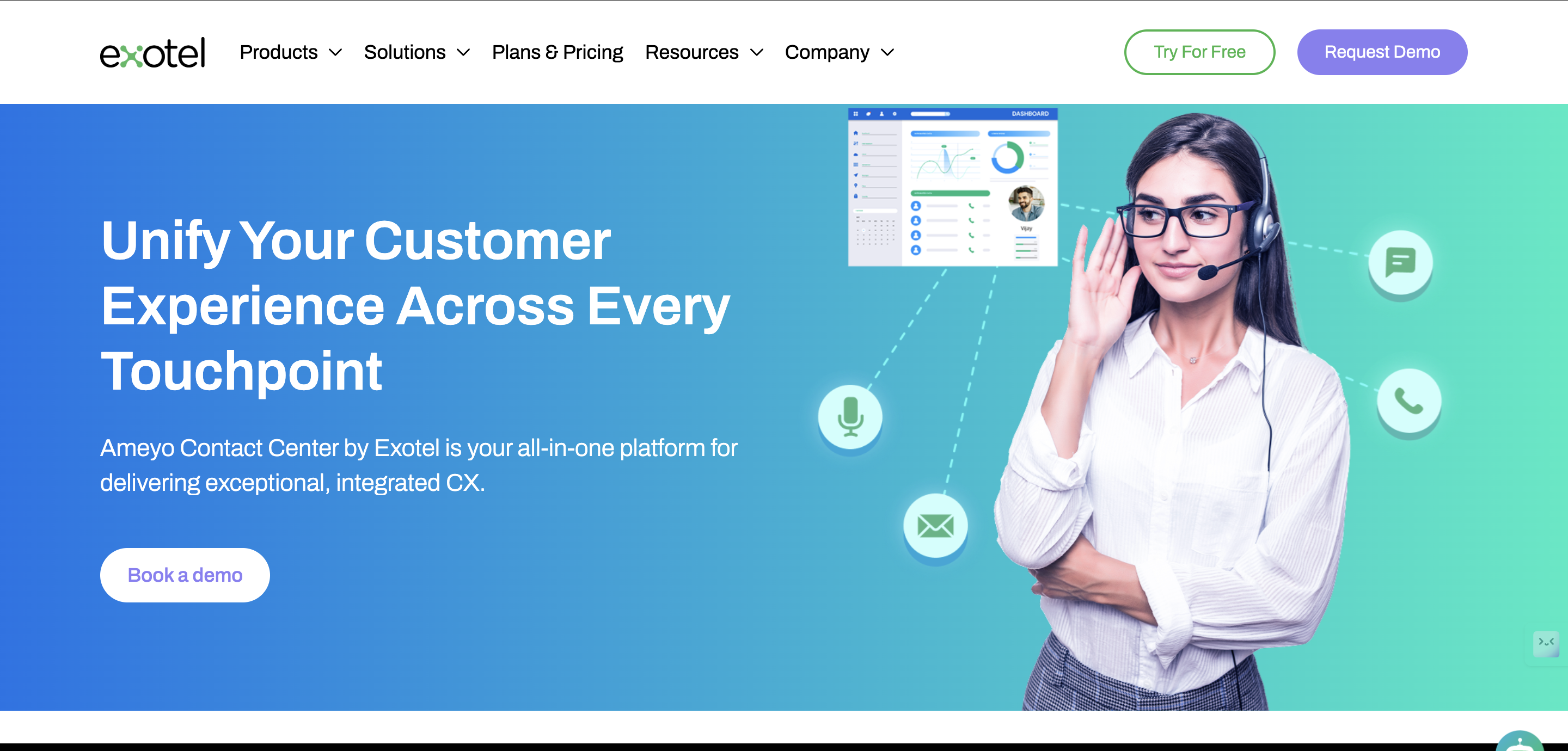
Best for: OTAs with heavy reliance on voice and call-center operations.
Overview: Ameyo focuses on contact-center–centric customer support. It’s very well-suited for OTAs where travelers prefer calling for urgent requests like last-minute cancellations.
Core Features:
- Supports inbound and outbound calling, IVR systems, and call routing designed for high-volume environments.
- For online travel agencies with multilingual audiences, Ameyo supports localized language capabilities.
- Its reporting features focus on call quality and resolution rates.
Strengths:
- In addition to voice, Ameyo also supports chat and email, though voice remains its strongest suit.
Limitations:
- The limitation lies in its narrower focus. It doesn’t offer the same breadth of omnichannel or AI-driven automation as other platforms.
6. Travelopro
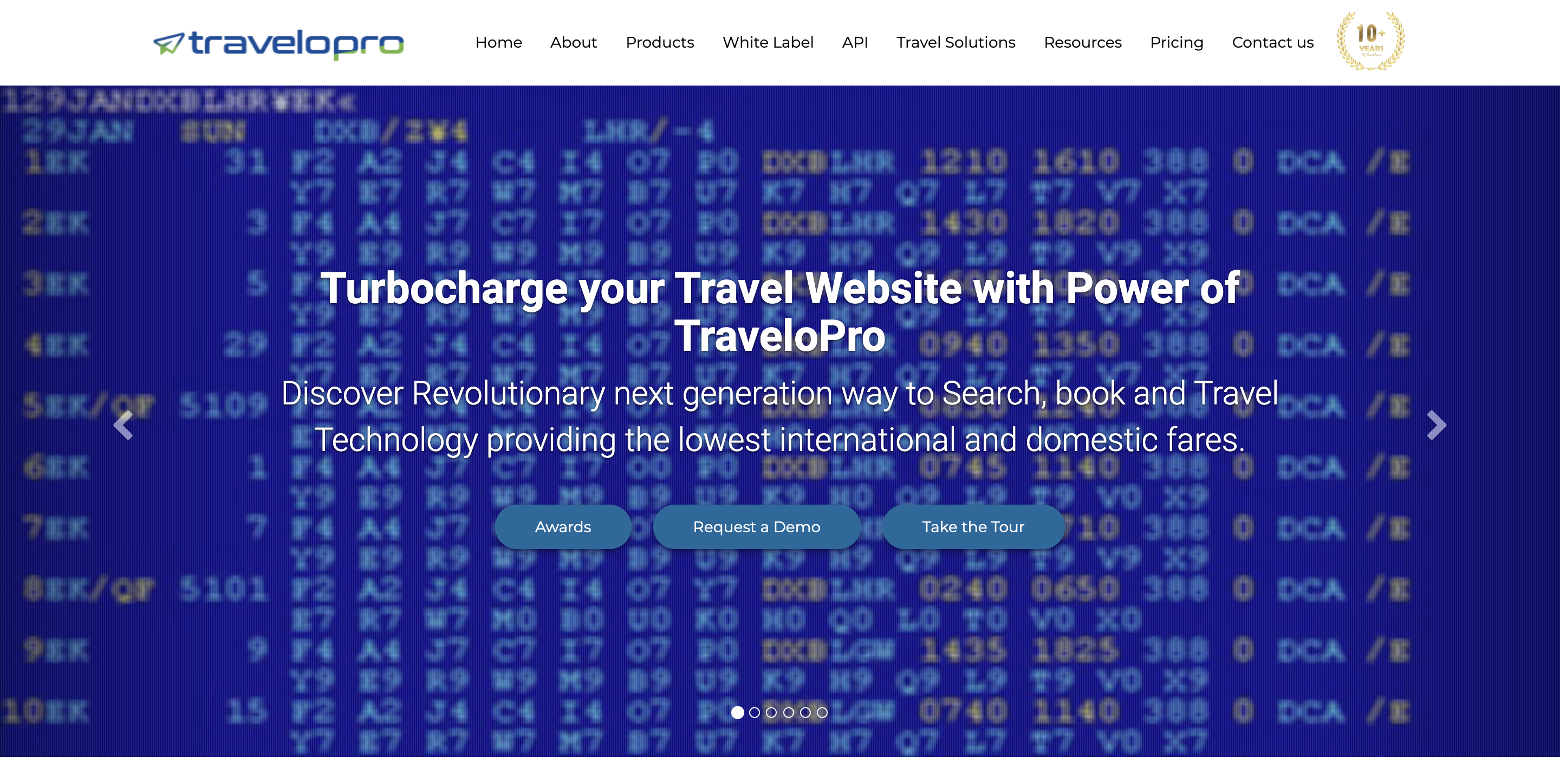
Best for: Niche travel help desks looking for travel-specific platforms.
Overview: Travelopro is a software provider that specializes in travel technology, including booking engines, B2B/B2C portals, and support modules. Its customer support tools are directly tied to reservation workflows.
Core Features:
- Agents can handle cancellations and refunds without leaving the platform.
- Omnichannel support and integration with GDS systems for smooth handling of travel-specific cases.
- The software also offers automation for routine tasks and built-in case tracking.
Strengths:
- Real-time, all-in-one inventory and booking engine connects multiple supplier sources via GDS and API integrations.
Limitations:
- Travelopro can be an efficient choice for small-sized travel agencies. Larger agencies may find it less scalable for enterprise-level needs.
7. Zoho Desk
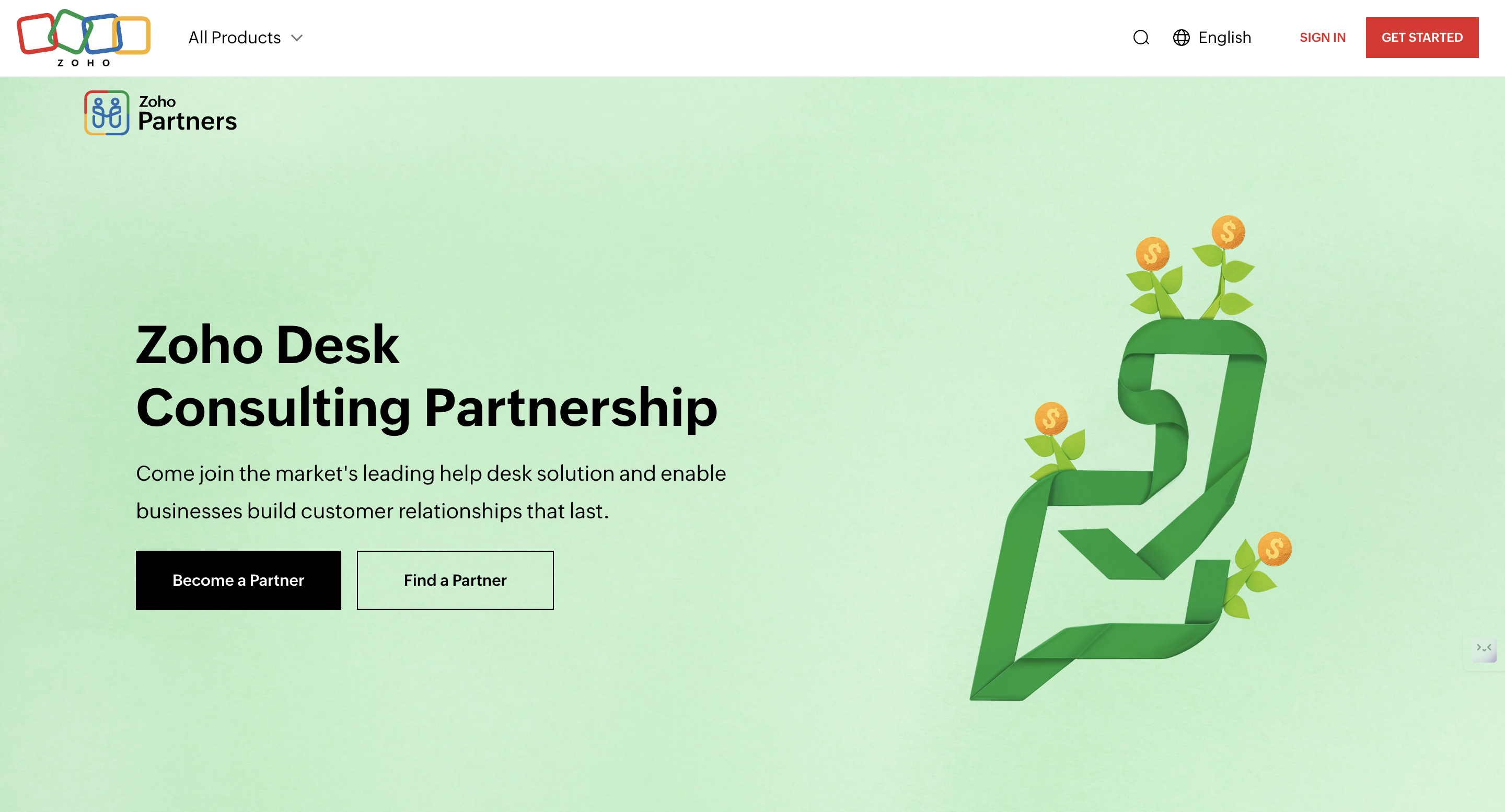
Best for: Startups and budget-conscious online travel agencies.
Overview: Travel entrepreneurs have embraced Zoho Desk, a general-purpose helpdesk platform, because of its ease and affordability. It offers self-service knowledge base, email and chat help, and ticket management.
Core Features:
- Zoho Desk connects with booking systems through APIs, despite not being designed with travel in mind.
- In order to enable agencies serve passengers from throughout the world, it also offers multilingual interfaces.
- Analytics include SLA tracking, customer satisfaction scores, and agent productivity.
Strengths:
- Zoho’s integration with Zoho Assist enables agents to initiate remote support sessions directly from within a ticket, providing a significant benefit for issues that are difficult to diagnose via text or chat.
Limitations:
- The platform’s reporting capabilities may not go as deep as enterprise-focused tools.
8. Replicant
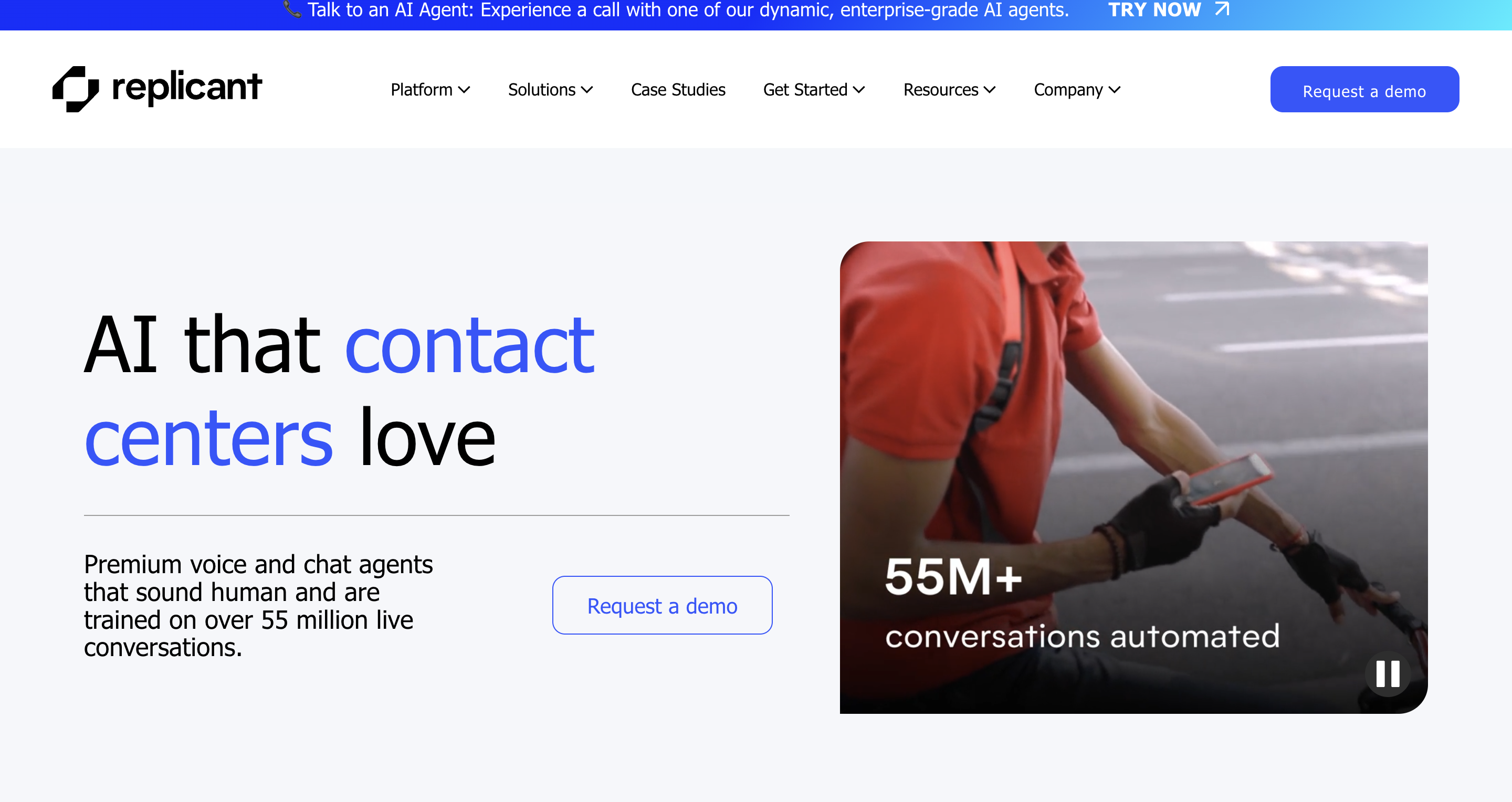
Best for: OTAs focused on voice AI for contact centers.
Overview: Replicant specializes in conversational AI for voice, positioning itself as a “voice AI agent” for call-heavy businesses. For OTAs, this means the ability to automate routine calls like refund checks and simple booking changes.
Core Features:
- In order to guide tourists through conversations and escalate to human agents when questions grow complex, the AI agents are made to seem natural.
- Real-time information is made possible via Replicant’s integration with reservation systems.
- Analytics cover call deflection rates, customer satisfaction, and cost savings.
Strengths:
- Replicant highlights that agencies can cut operational expenses significantly by automating voice calls, echoing industry stats that show AI call assistants can save up to 60% in costs.
Limitations:
- Replicant’s voice AI is powerful but can be costly and complex for smaller OTAs.
9. Genesys Cloud CX
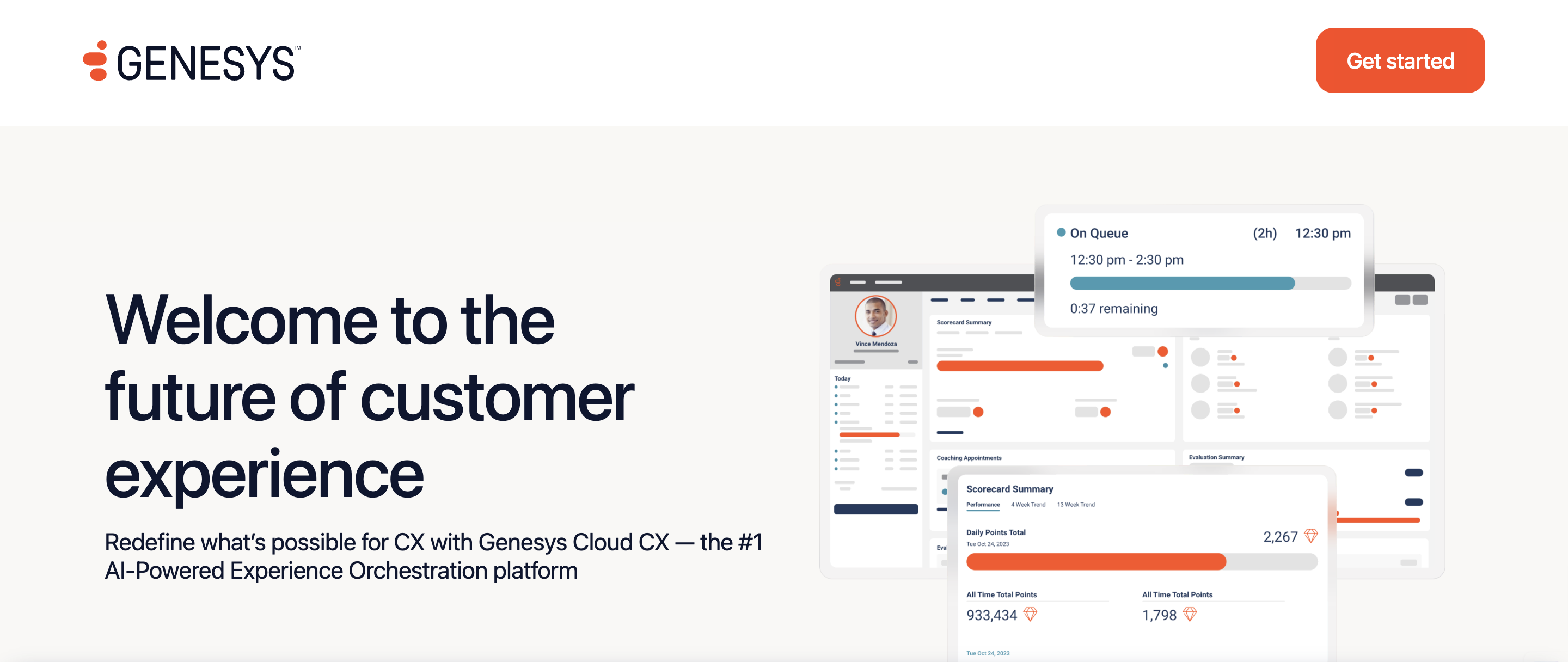
Best for: Enterprise-grade online travel agencies with global operations.
Overview: Genesys Cloud CX is a comprehensive customer experience suite built for large-scale, multinational organizations. For OTAs, its strength lies in end-to-end omnichannel coverage: voice, chat, messaging, and social, all powered by AI routing and automation.
Core Features:
- Genesys enables OTAs to design customer journeys that flow smoothly across different communication channel.
- Genesys is also strong in multilingual support.
- Its agent-assist features, combined with escalation workflows, ensure that high-stakes cases are handled effectively.
Strengths:
- Scalability with resilience. Genesys Cloud CX is built on cloud-native architecture, deployed across multiple global regions.
Limitations:
- The limitation is cost and complexity. Genesys is built for enterprise OTAs that can invest in a large-scale deployment. For smaller agencies, it may be overkill.
How Does OTA Customer Support Software Improve CX?
Online travel agencies are investing in smarter customer support tools that go beyond ticket logging and actually improve the end-to-end experience.
Here’s how:
- Decrease Average Handling Time: Support teams waste precious minutes switching between booking engines, payment portals, and email threads. With a unified dashboard, agents access all details in one place and cut resolution times dramatically.
- Improve First Call Resolution: Few things frustrate travelers more than repeating their issue across multiple agents. OTA platforms integrate booking and payment data directly into the support flow. This gives agents full context to solve most problems in the first call itself.
- Enable 24/7 Multilingual Support: Travel is global. Be it a midnight query from Tokyo or a baggage issue raised in Paris, multilingual support makes sure travelers aren’t left stranded due to language barriers. Research by CSA has shown that over 76% of consumers are more likely to make a purchase when information is offered in their native language.
- Customized Journeys: Support software uses booking insights to tailor responses, such as highlighting loyalty perks for frequent flyers or suggesting alternative hotels for a family trip. These small touches create memorable experiences.
- Retention Uplift with Better CX: A study by Harvard Business Review has shown that even a 5% improvement in customer retention can increase profits by 25-95%. For OTAs, that means more repeat bookings and stronger lifetime value.
Challenges OTAs Face Without Modern Support Tools
Many growing OTAs struggle to scale their in-house support teams, especially when dealing with multiple languages. This is mainly due to a lack of skilled agents and cost barriers. – FusionCX.
This quote reflects the reality for online travel agencies that still rely on outdated or fragmented systems. Without modern customer support software, OTAs face several hurdles that directly affect customer satisfaction and retention:
- High Agent Workload: Agents often switch between multiple booking engines, payment dashboards, and support channels. This not only slows response times but also leads to agent burnout.
- Fragmented Booking and Support Data: When booking details sit in one system and customer conversations in another, agents lack full visibility.
- Low CSAT from Long Queues: Travelers reaching out for urgent help often wait too long in queues. Long handling times translate into lower satisfaction scores and poor reviews.
- High Churn Rates: Switching costs are low in travel. If customers don’t get timely, accurate support, they quickly abandon one OTA for a competitor offering smoother service.
Future of Travel Customer Support Software
The next wave of customer support in online travel agencies is being shaped by AI and vertical specialization.
Large language models are already reducing agent effort by handling repetitive tasks like refund eligibility checks, baggage policy lookups, cancellation rules, etc. According to Convin, AI implementation can reduce handling time by up to 40%, delivering faster and policy-compliant responses while easing agent workload.
The next trend would be of proactive notifications. Instead of waiting for customers to raise tickets, modern platforms can push real-time alerts. As noted in a Grand View Research report, travelers “prefer mobile apps for their ease of use, real-time updates, personalized offers, and on-the-go access,” highlighting the importance of proactive, app-based communication in OTA support.
Vertical CX platforms vs. generic helpdesks. While traditional helpdesks work across industries, travel-specific platforms are emerging as a better fit. They integrate directly with booking engines, GDS systems, and payment APIs.
For example, Kapture CX is a vertical-first, AI-driven CX solution for OTAs. It is a single system that integrates booking, automation, and multilingual assistance. Consequently, this leads to quicker fixes and quantifiable enhancements in the experience of travelers.
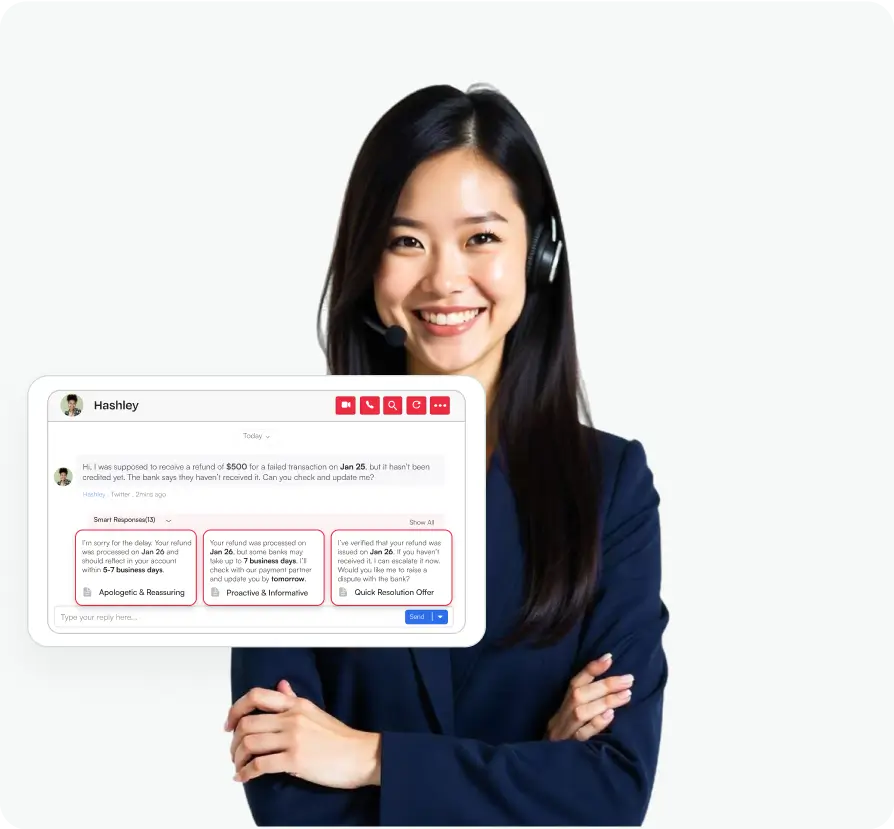
Building Loyalty Through Better OTA Customer Support
When plans change, travelers rely on the organization to help them. By offering prompt, multilingual assistance, a trustworthy travel help desk can turn stressful circumstances—like cancellations or delays—into good experiences.
In a competitive industry, agencies can maintain quick response times and cultivate enduring loyalty with the correct OTA customer support software.
If you want a platform designed for travel, Kapture CX offers AI-driven, vertical-first support that helps OTAs deliver exceptional service every time. Kapture CX centralises all traveller interactions in one intuitive dashboard, leveraging built-in APIs, and enhances it with multilingual support and smart automation.
Get in touch with us to know more!
FAQs
Yes. Many platforms allow integration with loyalty databases. They further enable agents to view reward balances, apply points to bookings, and resolve membership-related queries during support interactions.
Scalable OTA customer service software uses automation, smart routing, and AI chatbots to manage seasonal spikes, so that customers don’t face long queues even during rush periods.
Absolutely. While enterprise OTAs need advanced integrations, smaller agencies benefit from affordable, cloud-based options that provide omnichannel support and multilingual coverage.
